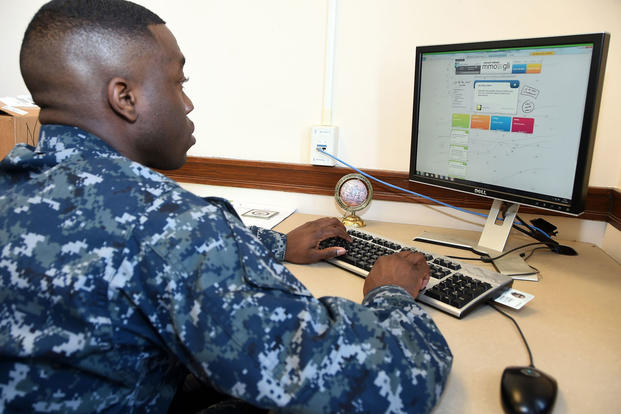The Navy wants annual training on topics such as suicide prevention and operations security to be more than a glassy-eyed annual ritual of clicking and scrolling.
In a sweeping move Monday, the service announced it is eliminating online General Military Training requirements entirely, leaving cybersecurity as the only GMT course requiring a computer.
While annual GMT requirements will remain, the move, announced in a Navy administrative message, will also build flexibility into the curriculum. Individual commands can determine when and how to complete training on other topics, and commanders can choose to make use of available online resources or go in a different direction.
"Topics such as Suicide Awareness, Equal Opportunity and Sexual Harassment, and Sexual Assault Prevention and Response require a more formal setting," the NavAdmin states, "while other topics such as Records Management, Operations Security, and Privacy and PII, for example, may be conducted at quarters, all-hands calls, divisional training, etc., using existing learning objectives and material as springboards to elicit discussion to the point that the leader is satisfied that the learning objectives are understood."
In an outdoor town hall meeting with sailors in Rota, Spain, on Tuesday morning, Chief of Naval Operations Adm. John Richardson said he wants to give troops more opportunities to practice small-unit leadership, even when completing routine annual training.
"By telling people to go to a computer and page through some kind of a brief, I see that as denying us, particularly you junior leaders, opportunities to get with your teams and lead. Okay?" Richardson said. "You can't lead with somebody staring at a computer. And you get no sense of team if everybody is off in a carousel or on a laptop somewhere, going through it on their own. These are opportunities for us to come together. This is how you build trust and confidence in your team."
This is the second change the Navy has made to the generally unpopular GMT system in two years.
In 2016, the service released a message announcing that it would build more flexibility into requirements, making seven courses mandatory to be completed online, including cybersecurity and OpSec briefs, but leaving the implementation of another nine courses to the discretion of the commander, encouraging leaders to have briefings and bring in outside experts to address topics including alcohol, drugs and tobacco awareness, and hazing prevention.
In a statement, Chief of Naval Personnel Vice Adm. Robert Burke said the change is thanks in part to sailors who expressed frustration with the lack of effectiveness and impersonal nature of the online training.
"I want sailors to know we've heard them," Burke said. "This is about restoring an important leader engagement opportunity -- an opportunity to talk about integrity, accountability and character -- something today's online products are missing. There is no doubt this approach will yield an even greater competitive edge for the Navy."
-- Hope Hodge Seck can be reached at hope.seck@military.com. Follow her on Twitter at@HopeSeck.




























